Scammers and thieves love Cyber Monday as much as you do
Scammers suck every day of the year, but they show up in force this weekend in particular.
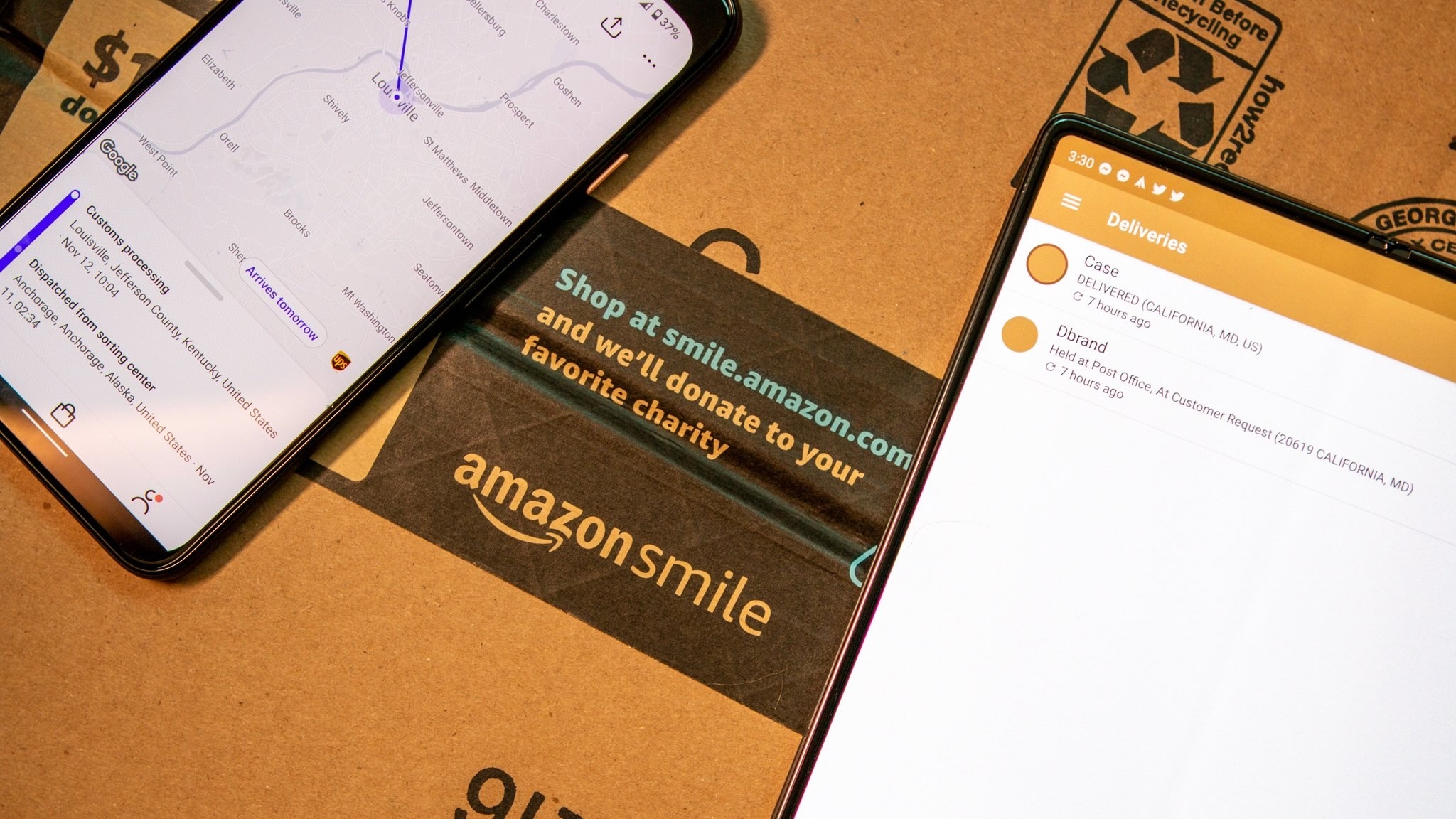
In the U.S., the few days following Thanksgiving have become the time to buy just about anything. You'll see all sorts of deals on everything from clothes to toys to tech products, and for many small businesses, it's the last chance to stay in the black for the year.
It's also the perfect time to pick up holiday gifts and random tech stuff that you either need or want, and millions of us will be online clicking in glorious consumer fashion. Me? I'm buying holiday gifts and grabbing a random assortment of cables and chargers while they're cheap. I'll probably spend a little bit on those really stupid things that I just have to buy because shopping is supposed to be fun, too.

One of the web's longest-running tech columns, Android & Chill is your Saturday discussion of Android, Google, and all things tech.
Another thing I'll be doing is watching out for scams and the various methods of thievery that surround the Black Friday/Cyber Monday shopping experience. Unfortunately, this is something you need to do, too. Scammers and thieves love this time of year as much as we do.
Here are a few things in particular to watch out for because we've already seen them popping up.
Scammers love phishing
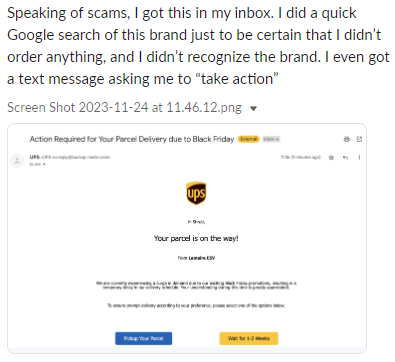
When millions of packages are on their way to millions of people, scammers know it's a great time to trick you into handing over your information. Be wary of any messages you get about the things you bought or are looking to buy or from an online retailer about your account.
The first thing to do is check who it's coming from. If an email says it's from Best Buy or Amazon, but it came from some random place like backup-mailer.com, it's fake. Best Buy emails come from bestbuy.com, Amazon emails come from amazon.com, eBay emails come from ebay.com, etc., etc.
Also, look at why the message says you need to take action. It's easy to grab a few images and forge an email, but a scammer doesn't know what you bought or when you bought it. The same goes for delivery companies — UPS might need to send you an email about a package it has to deliver to you. It will be for something you actually ordered from a website you actually used and be from UPS's actual website, not some random place.
Get the latest news from Android Central, your trusted companion in the world of Android
Best Buy emails come from bestbuy.com, Amazon emails come from amazon.com, etc., etc. If one doesn't it's a fake.
Finally, you usually need to sign up for an account to buy from an online retailer. Scammers know you probably have an Amazon or eBay account, and it's common to see a fake email that sends you to a fake website that looks just like the real thing, where it asks you to sign in. Once a thief has your username and password, they'll order stuff that ships quickly using your actual payment method. They get free stuff, and you get to try and fix the mess — it's a lot easier to look closely at a message and be sure it's legit.
Scammers want your credit card number
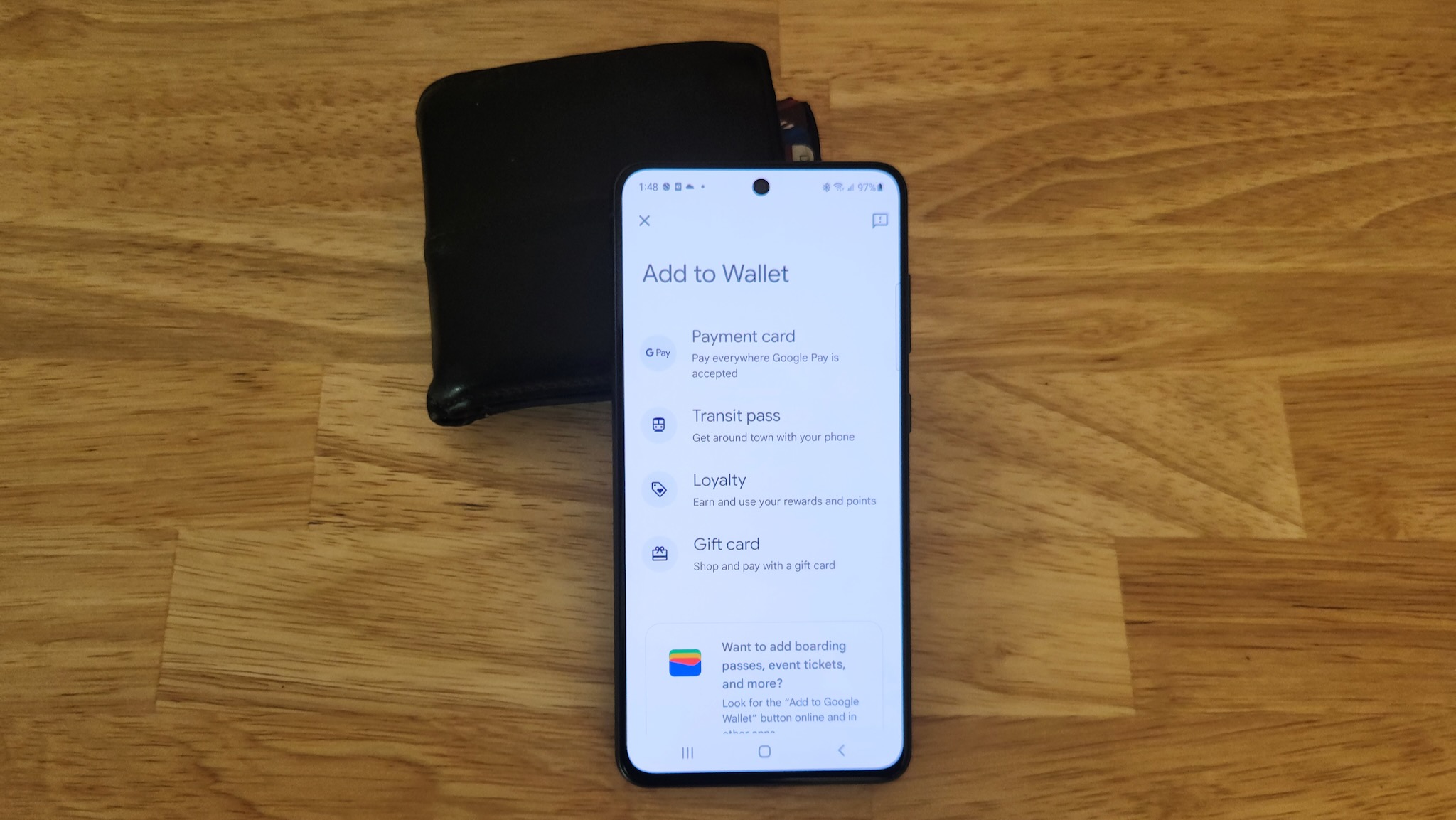
Sometimes, you find a great deal from a website that's not a household name. This is especially true for specialty products — I buy products for my pet parrot from small mom-and-pop type sellers all the time because I like to spoil her. In return, she screams and tears up the things I buy her, so I'm always on the lookout for a great deal.
Unfortunately, you can't really trust the people behind a website to have good security in place, and sometimes, you can't trust the people running a website at all. Credit card numbers are literally money, and they're far too easy to steal.
There are a couple of ways to prevent this, and the easiest way is built right into your phone. If a website gives you the option to use Apple Pay or Google Pay, use it every time you buy something.
PayPal is another option that hides your credit card number, and many online retailers, big and small, accept it. I know many people don't like PayPal for one reason or another, but it is an option, and it will keep some ne'er-do-well from getting your card number and security code.
It also is worth checking if your card provider offers the option to use a virtual card. These link directly to your account, but they use a randomly generated number and special software to authorize purchases and are pretty foolproof.
Scammers can be sellers, too
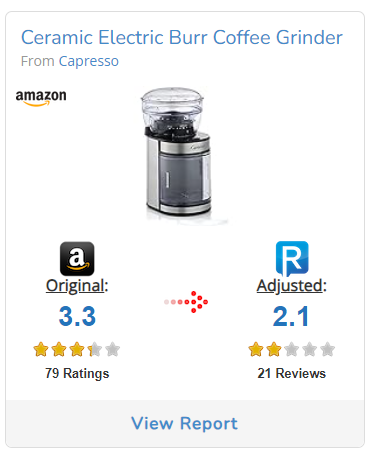
I hate to say it, but a lot of products you see at online retailers (Amazon in particular) are from sellers that really shouldn't be allowed to be there.
These aren't first-party sellers. For example, you can buy a new Galaxy Z Flip 5 on Amazon from Samsung, Amazon itself, or someone else who might not be as trustworthy. Always buy from a name you know and trust whenever you can.
Third-party sellers who aren't legit do two things to try to trick you. First, they will assemble a lot of fake reviews that simply give a high star rating or use a few short words like "Great!" or "Good seller!" to make you feel more trusting. It doesn't take a lot of fake reviews to drive the rating up, even if there are some more legit and worse reviews posted. Always take a peek through the product reviews before you click to see what you're looking at and who is selling it.
Another trick is to slowly start to ramp the price up in the weeks and months before the Black Friday weekend so they can take a bigger percentage off and call it a deal. If a product usually sells for $10, getting it for $8 is a nice deal. If the price was increased so that the $10 product is listed for $18, it looks like a super deal when it's listed at $8.
Use services like CamelCamelCamel and ReviewMeta to help you make better shopping decisions!
Thieves love to steal your packages
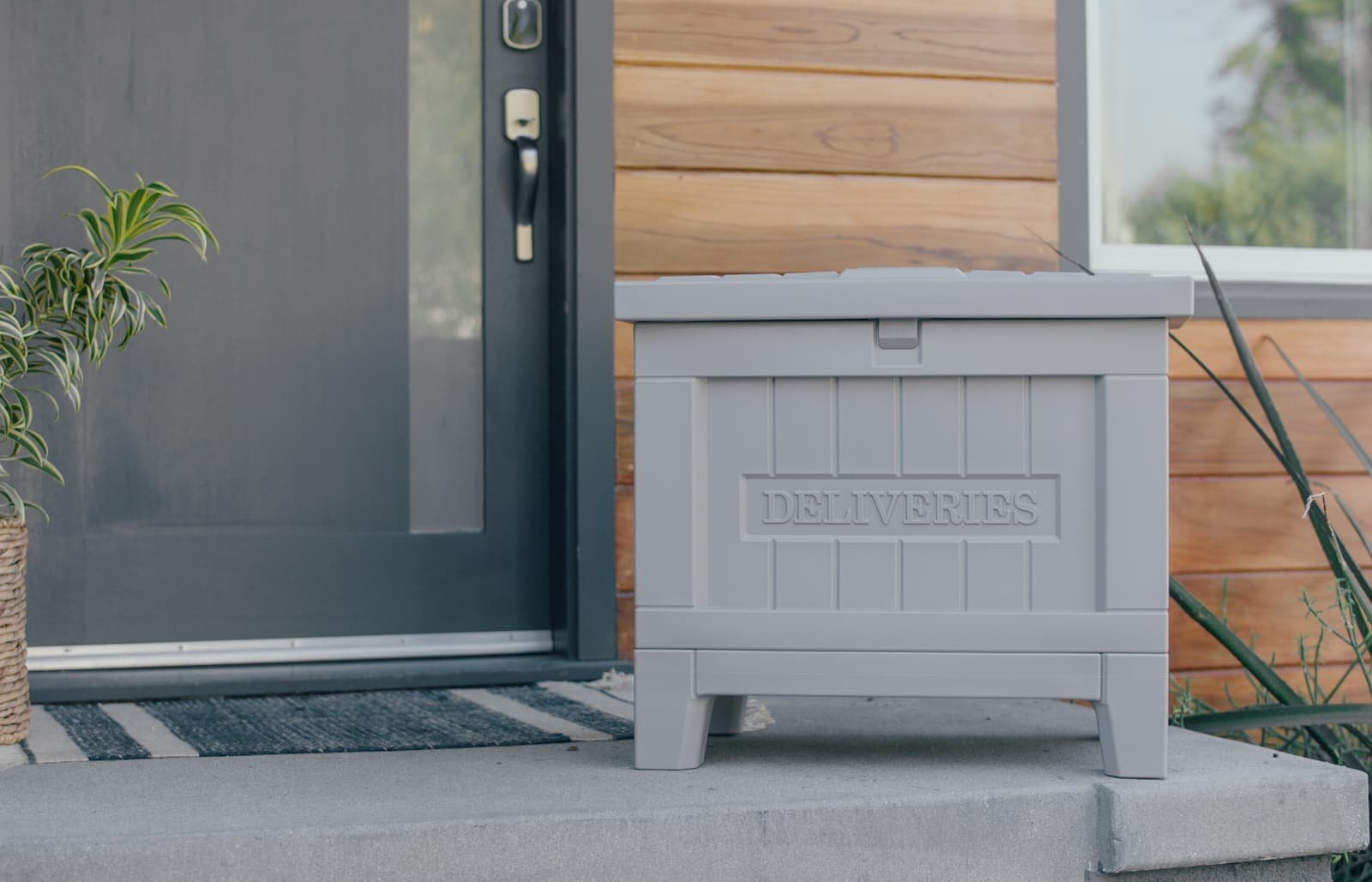
A few years ago, I had a visit from a Porch Pirate, and I was mad as hell about it. What they stole — it was a bag of cactus potting soil — wasn't important, but it was my cactus dirt. I hope their plants choked on it.
To fix the problem, I bought a Yale Smart Delivery Box. It's a big bin that has a smart lock, and the delivery person drops my stuff in it, where it stays safe until I get to it. Maybe cactus dirt doesn't need high-tech protection, but some other things we order do.
You probably don't need to buy a big box to protect your packages because you live close to a locker of some sort. You can find an Amazon Locker in most places, and UPS has them, too. You can also have your packages held for pickup at the post office or delivery company or have them sent somewhere like The UPS Store. The packages stay safe and out of the weather, so you can pick them up when you have the time.
If you live out in the sticks as I do — at the time, the closest locker was about 30 miles away — you should invest in your own smart locker if you buy a lot of stuff online. Thieves are especially interested in porch boxes this time of year.
I really like the looks of the Eufy Security SmartDrop, and if it had been available when I needed it, it's the one I would have bought. It sits on your porch, the delivery person presses a button that opens it, they drop your packages inside, and it locks until you enter a code to open it. It even has a built-in camera and notifications when something is delivered.
It sucks that you need to do anything like this, but thieves love boxes — especially Black Friday boxes.
These tips are important all year for anyone who shops online, but they especially matter right now. Take the time to protect yourself from scammers and thieves because they are taking the time to figure out new ways to rip you off.

Jerry is an amateur woodworker and struggling shade tree mechanic. There's nothing he can't take apart, but many things he can't reassemble. You'll find him writing and speaking his loud opinion on Android Central and occasionally on Threads.
